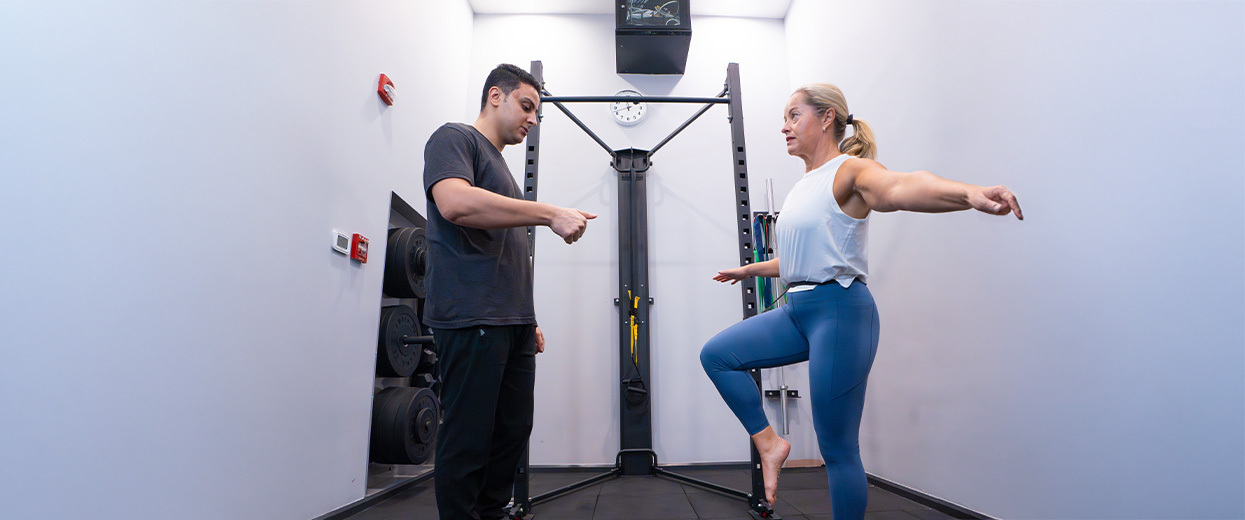Ready to Run? Postpartum Physiotherapy in Abu Dhabi
Becoming a mother is one of the most life-changing experiences a woman can go through. While the joy of holding your baby is unmatched, the physical changes that come after childbirth often leave many women struggling in silence. For some, it’s back pain that lingers, while for others, it may be weakened core muscles, pelvic floor discomfort, or a feeling that their body is just not the same.
Many new mothers feel eager to get back to exercising, running, or even just enjoying daily activities without pain. But the real challenge lies in knowing when and how to safely return to movement. This is where physiotherapy for mothers in Abu Dhabi becomes essential.
What is Postpartum Physiotherapy?
Postpartum physiotherapy focuses on helping women recover physically after childbirth. It addresses the changes that pregnancy and delivery bring to the body, changes that can impact posture, core strength, and pelvic health. It’s not only about fixing problems but also about supporting mothers in regaining confidence in their bodies.
Physiotherapists trained in women’s health understand that no two recoveries are the same. Some women may have delivered naturally, others through a C-section, and each will face unique challenges. Postpartum physiotherapy in Abu Dhabi takes these differences into account, guiding mothers gently and effectively back to movement that feels safe.
This type of care usually includes exercises designed to rebuild strength, improve balance, and restore function in muscles that were stretched or weakened during pregnancy and birth. It also provides education on how to move in ways that protect the body, especially when lifting or carrying a baby.
Why Do You Need Postpartum Physiotherapy in Abu Dhabi?
Abu Dhabi is a city full of opportunities for mothers who want to live active, healthy lives. Whether it’s jogging along the Corniche, joining a fitness class, or simply keeping up with daily routines, feeling strong again after childbirth matters, but without proper guidance, returning to exercise too soon can lead to setbacks like injury, pain, or long-term health issues.
Here are a few reasons why postpartum physiotherapy is so valuable for mothers in Abu Dhabi:
Support for Pelvic Floor Recovery
Pregnancy places a lot of stress on the pelvic floor. Some women experience leaking when sneezing or running, while others may feel heaviness in the pelvic area. Physiotherapy offers safe and specific strategies to rebuild pelvic floor strength, reducing discomfort and restoring control.
Core Strength and Stability
A common issue after childbirth is weakened abdominal muscles, sometimes accompanied by a condition called diastasis recti (a separation of the abdominal wall). Without proper care, this weakness can affect posture, cause back pain, and make exercise difficult. Postpartum physiotherapy provides step-by-step guidance to restore core stability.
Pain Relief and Better Mobility
Back, hip, and joint pain are common after childbirth. These aches can make simple tasks, such as bending, lifting, or walking, feel harder than they should. Through physiotherapy, women learn techniques to alleviate pain, enhance their posture, and move more comfortably.
Safe Return to Exercise
Many women in Abu Dhabi enjoy an active lifestyle. However, rushing into workouts without preparing the body can do more harm than good. Physiotherapists help mothers assess when they’re ready to start running, attending classes, or lifting weights again, ensuring a safe and gradual return.
Mental and Emotional Well-being
Physical recovery is closely tied to emotional health. Regaining strength and freedom of movement often helps mothers feel more confident, positive, and in control. Postpartum physiotherapy provides reassurance that the body can recover with the right support.
How Postpartum Physiotherapy Works
Every journey begins with an assessment. A physiotherapist looks at your posture, muscle strength, mobility, and areas of discomfort. From there, a tailored plan is created—one that fits your needs and goals.
Sessions may involve gentle strengthening exercises, breathing techniques, and stretches. Over time, the program is adjusted to challenge the body safely and help you regain endurance. Physiotherapists also guide you on everyday habits, such as lifting your baby or standing for long periods, so you can move in ways that protect your body from strain.
This personalized care makes physiotherapy much more effective than following generic workout plans online. It’s built around you, your delivery experience, and your current stage of recovery.
A Gentle Reminder Before You Run
It’s natural to want to get back to your old routine quickly. But the postpartum body needs time, patience, and guided care. Physiotherapy bridges that gap—helping you return not only to running but also to enjoying life fully, without pain or hesitation.
For mothers considering their recovery options, exploring safe physiotherapy is a practical step. It ensures that every movement you take is supported, safe, and aligned with your body’s healing process.
Ready for the Run?
Every mother’s recovery journey is unique, but one thing remains true: the body deserves care and attention after childbirth. Postpartum physiotherapy provides that care, helping women rebuild strength, manage pain, and return to activity with confidence.
Abu Dhabi offers the right environment, professional expertise, and supportive healthcare centers to make this recovery journey possible. By choosing postpartum physiotherapy, mothers can take an empowered step towards healing, ensuring that they’re ready not only to run but to thrive in every part of life.
This article is for informational purposes only and should not be taken as medical advice. Postpartum recovery varies for every woman, and it’s important to consult a qualified healthcare professional or physiotherapist before starting any exercise or treatment program.

